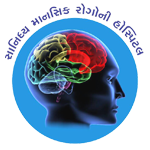

Sanidhya Psychiatric & Physiotherapy Center
02742 257666
OCD IN CHILDREN: SIGNS, SYMPTOMS, CAUSES, TREATMENTS
•If your child has Obsessive Compulsive Disorder, or is exhibiting symptoms that could be OCD, he or she is not alone. Current estimates suggest that one in 100 children has OCD, which means that millions of children worldwide are suffering with this disorder. When you include parents, other family members, friends, and school personnel who are affected by a child with OCD, this unwanted condition has an impact on many millions more.
•OCD is not a “phase” your child is going through. And your son or daughter isn’t deliberately misbehaving or trying to get attention. Your child is not to blame. Perhaps most importantly, it’s not your fault that your child has OCD. OCD is a neurobiological disorder, which means that the brain of a child with OCD functions differently than the brain of child who does not have OCD.
•OCD is a disorder that has a neurobiological basis. This brain condition affects how children (and adults) think. It is characterized by obsessions and compulsions that take up at least an hour a day. For many people, however, obsessions and compulsions consume several hours a day. Obsessions are involuntary intrusive thoughts, images or impulses that cause unbearable worry, fear or discomfort. To cope with the obsessions, the OCD sufferer devises processes or actions called compulsions, or rituals. In some cases, rituals are observable: a child washes his or her hands excessively or checks locks for extensive periods of time. In other cases, compulsions may be completed mentally and cannot be detected by an outside observer: the child is saying a prayer mentally to prevent something terrible from happening. These repetitive, ritualistic acts make a child feel better, but the relief is only temporary.
Symptoms of OCD in Children
The symptoms of OCD in children involve repetitive thoughts or images called obsessions. Compulsions represent the ritual behaviors that they repeat again and again to banish the thoughts.
Examples of obsessive thoughts in OCD kids may include:
•Excessive preoccupation with germs, dirt, illness
•Expresses repeated doubts, such as whether the stove is turned off
•Intrusive thoughts about a parent getting hurt
•Excessive preoccupation with symmetry, order, and exactness
•Disturbing thoughts that do not align with personal religious training
•Excessive drive to know or remember facts that seem very trivial
•Unreasonable attention to detail
•Excessive worry about something bad happening like a car accident or home intruder breaking in
•Aggressive thoughts and urges (may be more likely in teens)
Examples of compulsive behaviors in OCD kids may include:
•Washing hands excessively, frequently over 100 times a day
•Repeated checking and rechecking to ensure stove is turned off or door is locked
•Rigidly follows self-imposed rules of order like arranging personal items in room in a particular way and becoming very upset if someone disrupts the arrangement
•Excessive counting and recounting
•Preoccupation with sequencing or grouping objects
•Repeatedly and excessively asking the same questions
•Repeating words spoken by self or others
•Repeating sounds, words, numbers, or music to him- or herself
OCD in Children – Causes
Biological factors – research shows a link between insufficient levels of the neurotransmitter, serotonin, in the development of OCD in children. Some evidence exists that indicates parents can pass serotonin inefficiencies to their children. Because of this scientists also suspect a genetic component in OCD development.
Environmental factors – Certain environmental situations and stressors can trigger OCD in children already at risk for the disorder. Environmental situations that can cause symptoms to appear or worsen include:
•Physical or emotional abuse
•Drastic changes in living environment
•Illness (such as streptococcus infections)
•Death of a loved one
•Parental divorce
•School-related changes or issues
•Other traumatic events and experiences
sanidhyapsychiatrichospital@yahoo.com
Mon to Sat
Mor 10.00 A.M to 4.00 P.M
Ev 5.30 P.M to 8.00 P.M
Sai Complex,2nd Floor,
Opp Prakash Super Market, Gobri Road, Sanskar Society,
Palanpur, Gujarat 385001
Copyright © Dr.Nishant Saini (Sanidhya Hospital,Palanpur). All rights reserved.
Designed & Developed By : pCube Software Solution,Palanpur